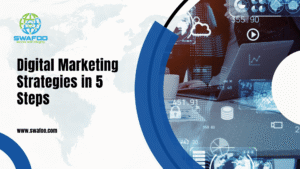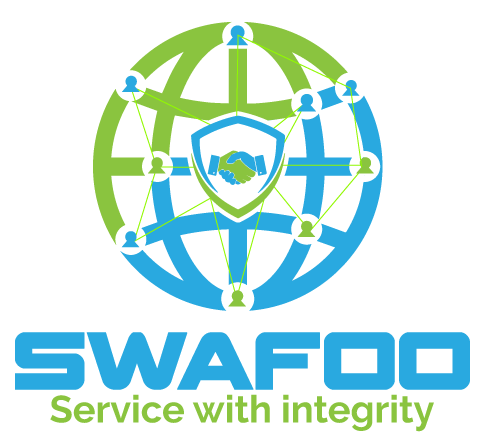Small Business Digital Marketing | 2025 Budget & Services
Small Business Digital Marketing | 2025 Budget & Services

Small business digital marketing isn’t a luxury, it’s the foundation of growth. Whether you’re competing with big brands or carving your niche in a local marketplace, having a well-planned budget and clear marketing strategies is essential. For small businesses, especially those with a limited budget, knowing how to invest wisely can determine whether you scale or stall.
How Much Should a Small Business Budget for Digital Marketing in 2025?
When building a digital marketing budget, the first question most small business owners ask is: How much should I spend? According to the U.S. Small Business Administration, businesses of all sizes should spend about 7-8% of their revenue on marketing efforts. But in 2025, the number varies based on your industry, growth goals, and marketing channels.
For many small and growing companies, it makes sense to start with 5-10% of revenue and adjust based on performance. Digital marketing costs can include SEO, online ads, influencer collaborations, and more, so prioritize what will drive better results for your business.
Platforms like TikTok, Google, and Meta are increasingly pay-to-play. That doesn’t mean you have to overspend. You can spend less but smarter by targeting competitive keywords, refining your ad campaign, and building awareness with cost-effective tactics like content marketing or word-of-mouth campaigns.
What Digital Marketing Strategies Are Most Effective for Small Businesses?
Not all marketing strategies are created equal. For a small business working with a limited budget, efficiency matters. So, what works in 2025?
First, prioritize SEO. Search engine optimization remains one of the most cost-effective ways to bring traffic to your site. Whether you’re a small business selling products and services or offering professional services, being found on search matters.
Second, invest in video content. Short-form videos increase engagement and improve ad performance across multiple platforms. They also help reinforce your message, guiding your target market along the customer journey.
Third, remarket. Many businesses overlook the value of staying in touch with site visitors. Remarketing through online ads helps remind people of what you offer, boosting conversions and improving return on investment.
Should You Hire a Marketing Agency or Build In-House?
You’re a small business. That means every dollar you allocate has to count. So the question becomes: do you build a dedicated marketing team, hire freelancers, or partner with a marketing agency?
Hiring in-house gives you control and daily access, but it also means covering salaries, benefits, and training. Freelancers are flexible but often lack the full-scope expertise needed to scale. A marketing agency, on the other hand, offers access to a full team of experts who can launch, track, and optimize your marketing campaign.
For many small businesses, partnering with a marketing agency is more cost-effective in the short term, especially when you want to launch across multiple channels or need professional services like paid media, keyword research, or analytics.
What Are the Best Marketing Channels for Small Business in 2025?
Choosing the right marketing channels in 2025 depends on your audience and goals. Many business owners get overwhelmed by the options, but a focused approach yields better results.
Email marketing remains powerful, especially when your message is personalized and segmented by user behavior. Social media platforms are still vital, with Instagram and TikTok being top platforms for brand awareness.
Search engine optimization and content marketing are the slow burn, bringing long-term results through consistent effort. Paid ads help gain immediate traction, just make sure to monitor ad spend and use attribution tools to measure ROI accurately.
How Can Small Businesses Optimize Their Digital Marketing Budget?
Optimizing your digital marketing budget starts with data. Track ad performance and website analytics closely. Focus on what’s working and cut what’s not.
Use automation tools to save time on repetitive tasks, and refine your funnel to capture leads and nurture them over time. Every dollar should have a job, from raising brand awareness to converting new customers.
Allocate your budget based on performance. If SEO is driving more traffic and conversions, invest more there. If paid ads aren’t delivering, shift those funds. The goal is to spend on digital marketing tactics that bring you closer to your target market.
Why Is Marketing In-House Not Always the Best Option?
While some small business owners prefer marketing in-house for control, it’s not always the most strategic move. Limited in-house marketing capabilities can mean slower execution and less expertise across platforms.
Professional services from a marketing agency often include access to experienced marketers, updated tools, and cross-platform expertise. This enables faster adaptation to marketplace changes and more impactful marketing efforts.
Plus, an external partner brings a fresh perspective to your marketing challenges, often pointing out overlooked opportunities or bottlenecks in your current funnel.
What Are the Must-Have Marketing Services for Small Businesses in 2025?
In 2025, the marketing services that matter most to small businesses include:
- SEO and local search optimization
- Content creation and distribution
- Paid media strategy (Google, Meta, TikTok)
- Analytics and performance tracking
- Email campaigns and remarketing
These services help build brand awareness, increase visibility, and improve customer retention. A good marketing tactic isn’t just flashy, it delivers the best results and drives ROI.
How to Partner with the Right Marketing Agency for Better Results?
Finding the right marketing agency is about more than cost. Look for a partner who understands your business, your marketplace, and your growth goals.
Start with a free consultation. Ask how they attribute success, what platforms they recommend, and whether they offer strategies to help you allocate your marketing budget wisely.
Review case studies and talk to other business owners who’ve worked with them. A trustworthy partner will be transparent about ad spend, funnel performance, and how they tailor campaigns based on performance.
What to Remember About Small Business Digital Marketing in 2025
If there’s one thing to remember, it’s that 2025 is about smarter, not just more. You don’t have to match big brands dollar-for-dollar. Instead, focus your limited budget on what works: SEO, content, remarketing, and data-driven optimization.
The right digital marketing strategies will help you attract new customers, increase ROI, and scale sustainably. And whether you choose to build in-house, work with freelancers, or partner with an experienced marketing agency, stay focused on your message, your goals, and your marketplace.
Marketing in 2025 isn’t just about making noise. It’s about making an impact.
Share This Post
Subscribe To Our Newsletter
Get updates and learn from the best
More To Explore

The Truth About SEO and Web Design: How Smart Design Can Improve Your Ranking
SEO and Web Design Every business wants to appear at the top of search engines. But few realize how closely web design and SEO work

Digital Marketing Strategies in 5 Steps: How to Create One That Delivers Results
Marketing Strategies Creating digital marketing strategies that actually work isn’t about chasing trends or using every platform at once. It’s about focus, knowing what your



